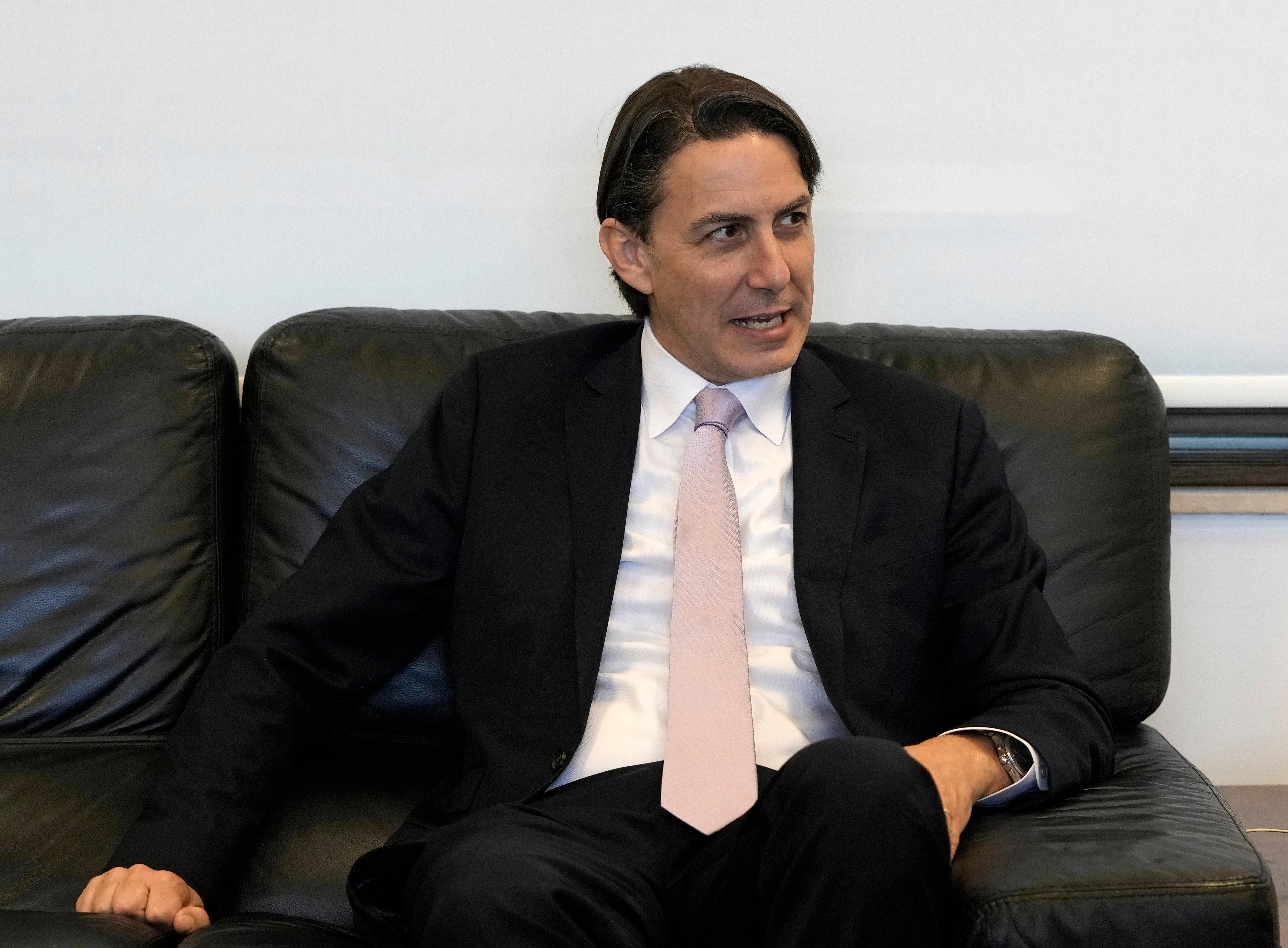US envoy talks with Lebanese on border dispute with Israel
The U.S. envoy mediating between Lebanon and Israel over their disputed maritime border has met with Lebanese President Michel Aoun and discussed ways of reaching a solution amid rising tension along the tense border

The U.S. envoy mediating between Lebanon and Israel over their disputed maritime border met Lebanese President Michel Aoun on Tuesday in Beirut, the president’s office said . The talks focused on ways of reaching a solution amid rising tensions along the tense boundary.
Amos Hochstein, a senior adviser for energy security at the U.S. State Department, arrived in Beirut on Monday following an invitation by the Lebanese government. The invitation came after Israel set up a gas rig at its designated location at the Karish field, which Israel says is part of its U.N.-recognized exclusive economic zone. Lebanon insists it is in a disputed area.
Israel and Lebanon's Iran-backed militant Hezbollah have been exchanging threats, with Hezbollah's leader last week warning he would strike the gas rig at Karish. The heavily armed Hezbollah, which has fought several wars with Israel, has repeatedly said in the past that it would use its weapons to protect Lebanon’s economic rights.
Days later, Israel's army Chief Aviv Kochavi threatened Lebanon with “unprecedented bombing” saying that a future war would be very large.
The U.S.-mediated indirect talks between Lebanon and Israel have been stalled since last year amid disagreements within Lebanon over how big the disputed area is.
The two countries, which have been officially at war since Israel’s creation in 1948, both claim some 860 square kilometers (330 square miles) of the Mediterranean Sea. Lebanon hopes to unleash offshore oil and gas production as it grapples with the worst economic crisis in its modern history.
Last year, the Lebanese delegation in the talks — a mix of army generals and professionals — offered a new map that pushes for an additional 1,430 square kilometers (550 square miles) as Lebanese territory.
Hochstein did not speak to reporters after his 40-minute meeting with Aoun. Lebanese media reported ahead of Tuesday's meeting that Aoun would put forward several proposals, including one which shows readiness to give Israel full control of Karish field in return for Lebanon getting the Qana field, part of which stretches deep into the disputed area.
During a visit to Lebanon in February, Hochstein handed Lebanese officials a proposal which gives more than half the disputed area to Lebanon. Lebanon did not respond to the proposal.
Asked what the United Nations could do to advance the negotiations, Stephane Dujarric, spokesman for the U.N. Secretary-General, said the U.N. can “work with the parties to help them find a solution through dialogues, through discussion, between both sides.”
The dispute over the maritime border is more than a decade old. In 2012, Lebanon rejected an American proposal of getting 550 square kilometers (212 square miles), or almost two thirds of the area, while Israel would have gotten the remaining third.
The offer was known at the time as the “Hoff Line,” after U.S. diplomat Frederick Hoff who was mediating then between the two countries.
Bookmark popover
Removed from bookmarks